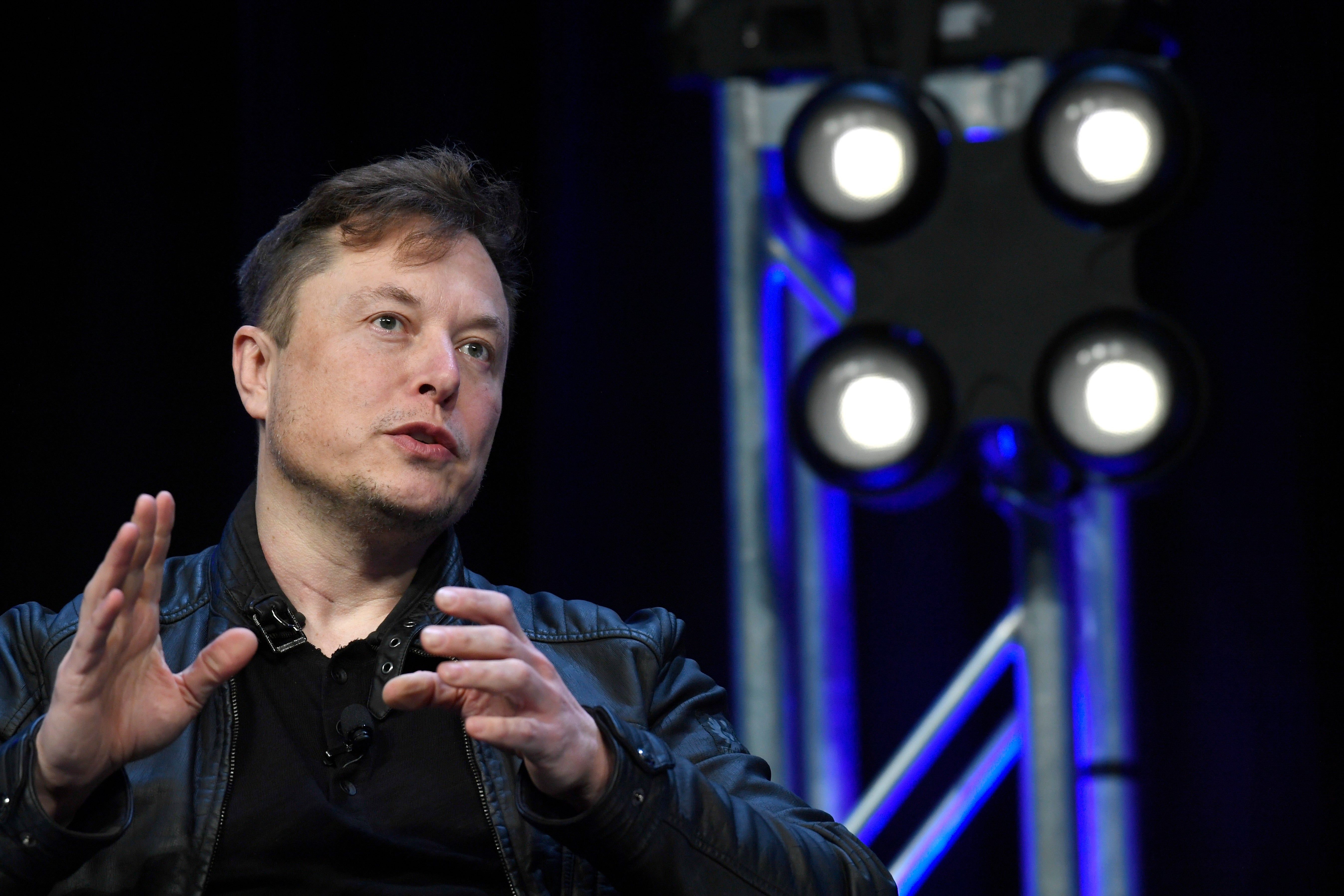Dart mission: Elon Musk celebrates Nasa’s success with Will Smith tweet

Your support helps us to tell the story
From reproductive rights to climate change to Big Tech, The Independent is on the ground when the story is developing. Whether it's investigating the financials of Elon Musk's pro-Trump PAC or producing our latest documentary, 'The A Word', which shines a light on the American women fighting for reproductive rights, we know how important it is to parse out the facts from the messaging.
At such a critical moment in US history, we need reporters on the ground. Your donation allows us to keep sending journalists to speak to both sides of the story.
The Independent is trusted by Americans across the entire political spectrum. And unlike many other quality news outlets, we choose not to lock Americans out of our reporting and analysis with paywalls. We believe quality journalism should be available to everyone, paid for by those who can afford it.
Your support makes all the difference.Elon Musk has celebrated Nasa’s success in colliding with an asteroid with a joke tweet about Will Smith.
Mr Musk’s post came the day after Nasa’s DART mission successfully smashed into the object, with a view to testing out how the space agency might divert the course of a similar dangerous object in the future.
He shared a tweet that use an image of Will Smith’s infamous attack on Chris Rock at the Oscars, but referencing the collision of the two objects in space.
Nasa is a regular client of Mr Musk’s company, SpaceX, which it uses for a range of missions including the launch of the DART spacecraft. SpaceX had already sent its – more regular – congratulations to Nasa on Twitter.
Mr Musk’s latest post came amid increased attention on his Twitter account, as the date of a court case between him and the company nears. The billionaire has continued to post often about a range of topics, though has largely stayed away from any discussion of the case.
Twitter will argue that Mr Musk should be forced to buy the company, after he pulled out of a $42 billion offer and accused the company of being deceitful about the number of automated accounts on its platform.
Mr Musk has instead focused on other topics, including the DART mission and his apparent congratulations to Nasa.
The $330 million mission, some seven years in development, was devised to determine if a spacecraft is capable of changing the trajectory of an asteroid through sheer kinetic force, nudging it off course just enough to keep Earth out of harm’s way.
Whether the experiment succeeded beyond accomplishing its intended impact will not be known until further ground-based telescope observations of the asteroid next month. But NASA officials hailed the immediate outcome of Monday’s test, saying the spacecraft achieved its purpose.
“NASA works for the benefit of humanity, so for us it’s the ultimate fulfillment of our mission to do something like this - a technology demonstration that, who knows, some day could save our home,” NASA Deputy Administrator Pam Melroy, a retired astronaut, said minutes after the impact.
DART, launched by a SpaceX rocket in November 2021, made most of its voyage under the guidance of NASA’s flight directors, with control handed over to an autonomous on-board navigation system in the final hours of the journey.
Monday evening’s bullseye impact was monitored in near real time from the mission operations center at the Johns Hopkins University Applied Physics Laboratory in Laurel, Maryland.
Cheers erupted from the control room as second-by-second images of the target asteroid, captured by DART‘s onboard camera, grew larger and ultimately filled the TV screen of NASA’s live webcast just before the signal was lost, confirming the spacecraft had crashed into Dimorphos.
DART‘s celestial target was an oblong asteroid “moonlet” about 560 feet (170 meters) in diameter that orbits a parent asteroid five times larger called Didymos as part of a binary pair with the same name, the Greek word for twin.
Neither object presents any actual threat to Earth, and NASA scientists said their DART test could not create a new hazard by mistake.
Dimorphos and Didymos are both tiny compared with the cataclysmic Chicxulub asteroid that struck Earth some 66 million years ago, wiping out about three-quarters of the world’s plant and animal species including the dinosaurs.
Additional reporting by Reuters
Join our commenting forum
Join thought-provoking conversations, follow other Independent readers and see their replies
Comments